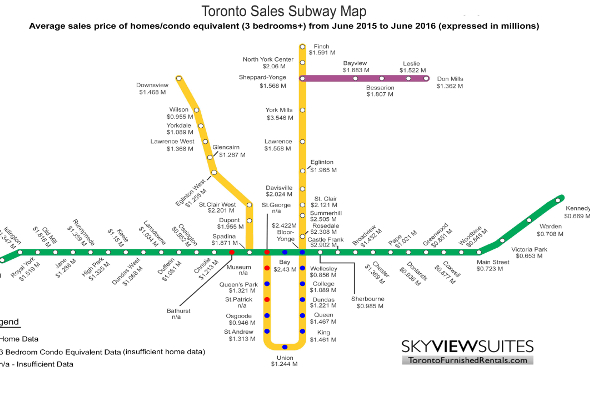
It’s not just home ownership

Toronto has been named one of the hottest, most progressive, and most lucrative places to live in the world, offering great entertainment experiences, a fabulous mix of historic and modern architecture, employment opportunities, fancy living, and investment properties. Even Toronto’s musicians are on fire, furnishing Torontonian playlists with catchy rhythms, beats, lyrics and voices. I hit play and sing along. I take the drive downtown through the Queens Quay, the Gardiner, and Lakeshore and I am in awe at the changes. After all, I grew up here through the 80s, and have been around for most of the development thereafter, including the influx of boutique restaurants and businesses, the increasing cool of Queen Street, and the enactment of hundreds (is it hundreds?) of condominium towers in the downtown Toronto area. The patios and restaurants are bustling. Display windows look so inviting. It appears (to me) that there’s a surge of pedestrian traffic and a lot of bicycle traffic that was not about while I was growing up. There’s a vibe. The most appealing part of Toronto, at least for me, is the combination of the older buildings against the newer, modern developments. So often, I find them side by side, or quite literally, across the road from one another. The contrast is gorgeous. I think to myself, this is beautiful! This place is so cool! What a wonderful place to live! But for many, living comfortably in Toronto is unlikely. A quick Google search indicates that the average price of a Toronto detached home now exceeds $1 million dollars. In fact, the Toronto Star reported as recently as 5 October that Toronto home prices have continued to increase significantly within the last year. So while Toronto is beautiful and livable for some, it has become exclusionary for others, and not just for persons who want to buy a house. Even persons who might wish to purchase a condo unit may have difficulties. Even persons who wish to rent space to live in Toronto may have difficulties.
Home ownership in Toronto is increasingly unattainble, with mortgage, utility, and property taxes consuming a higher percentage of family incomes than ever before. According to the Royal Bank of Canada, the percentage of family income now devoted to mortgages and property maintenance has exceeded 70% for a detached Toronto home. This figure has increased significantly since 1985’s average family income commitment at 55%. (Source: www.cbc.ca/news/business/toronto-vancouver-house-prices-1.3623873)
The effect of these increasing property prices will most certainly affect persons who are considering a home property purchase in the near future. In spring 2016, the Bank of Montreal indicated that as a result of the continued rise in property prices, more individuals were delaying home ownership until they can afford what they really want. However, if these property prices continue to rise, will home-seekers ever be positioned to afford (to own) what they want? Until individuals are positioned to afford “what they want,” the only alternative may be to rent, an option that remains expensive in Toronto, and still unaffordable for many Torontonians.
Although condo rentals have not experienced a similar rise in prices compared to houses, there have been increases. According to the Toronto Real Estate Board, the average condo rentals in Toronto for early 2016 were as follows:
- Bachelor, $1,376 – a 3.8% year-over-year increase
- One-bedroom, $1,662 – a 4.8% year-over-year increase
- Two-bedroom, $2,375 – a 8.9% year-over-year increase
- Three-bedroom, $2,789 – a 0.5% year-over-year increase
(Source: http://www.ctvnews.ca/business/rent-prices-among-the-casualties-of-hot-housing-markets-1.2878932)
Living increases are of course expected to happen everywhere when they do happen. However, it seems that Toronto has experienced a drastic cost of living increase (focused here in the form of property and rental price increases), along with an increase in the Toronto population. In my view, this may suggest that there is an increase of persons who cannot afford to continue to live in Toronto and who face displacement from this city as a result. The ease of moving within Toronto (or even around Toronto) in order to meet financial obligations might be easier for some as opposed to others. In some cases, relocation would not solve the problem (because it remains excessively unaffordable irrespective where that individual goes). As the Toronto population increases, and as sole-parent families increase, and as some families dissolve, and as our population ages, and as individuals continue to face homelessness and poverty, the need for affordable living in our Toronto (and indeed, within our country) has becomes increasingly urgent. (For more information see, Heffernan, Tracy; Faraday, Fay; and Rosenthal, Peter. “Fighting for the Right to Housing in Canada.” Journal of Law and Social Policy 24. (2015): 10-45.)
